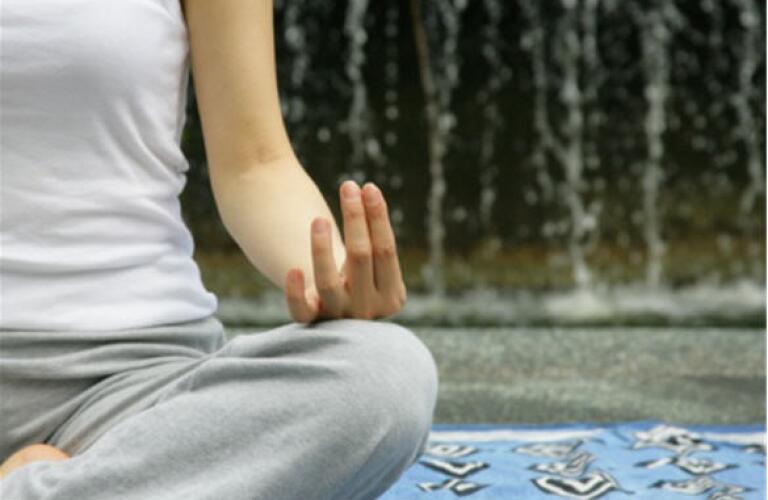
The number of Americans receiving a diagnosis of depression or anxiety has risen greatly in recent years: about one in five Americans will suffer from depression at one point in their lives, and anxiety disorders are currently the most common mental illness in the United States, affecting 18% of the population. Often, these two conditions co-occur—nearly half of people diagnosed with depression also struggle with an anxiety disorder.
People who are living with these disorders often believe they can overcome them without any help, and may feel like they’ve failed when they’re not able to do so. But both depression and anxiety are medical conditions that require appropriate treatment. The good news is there are lots of effective treatment options out there, and that doesn’t just mean taking medication. Psychotherapy has been proven to greatly benefit those struggling with these disorders; in fact, research shows that the combination of medication and therapy together leads to better outcomes than either treatment style alone. And in that same vein, experts are now finding there’s another tool available to help patients struggling with depression and anxiety: meditation.
Put simply, meditation is a practice of “quieting the mind” with the overall goal of focusing attention and emotions on reaching inner peace. When you meditate, you turn your thoughts to one focal point, like your breath, bodily sensations, slow repetitive counting, or a calming, repetitive phrase called a “mantra.”
But meditation goes beyond just closing your eyes and saying “omm.” Even though you’re sitting still, there’s a lot happening inside your brain while you meditate. Studies have shown that by regularly practicing meditation, you can help dysfunctional areas of the brain begin to function correctly again—and that’s important for people struggling with depression and anxiety, as these conditions disrupt the brain’s ability to work properly. When you’re depressed or anxious, the mechanisms in your brain that regulate your mood, help with memory, assist in learning, and form your perception of reality don’t function like they should. But many studies over the last four decades have shown that regular meditation can reset the balance and get you healthy again. Biologically, meditation can change the structure of your brain and enhance your ability to regulate your mood, memory, and cognitive abilities. Psychologically, the lessons of meditation can also help you to reframe your reality—to become more accepting of the parts of your life you can’t change and to be comfortable with uncertainty.
Experts have found the benefits of meditation on the brain can be seen after just eight weeks of regular practice. And while committing to eight weeks of daily meditation may seem intimidating, many regular meditators say the practice becomes an enjoyable and refreshing daily habit. Many meditate more than once a day. To get started with meditation, find a reputable website, podcast, mobile app, or local wellness center to guide you as you begin. Take it slow—start by meditating for just 10 minutes, and then slowly increase your time when you feel like it. The point of meditation is to relax without judgment, so be compassionate and patient with yourself. While it may seem difficult at first to quell racing thoughts, remember that the more you practice, the easier it will be, and eventually meditation will come naturally.
Just like there are different types of medication and therapy, there are different forms of meditation—and research has shown some specific styles of meditation are ideal for fighting depression and anxiety. Mindfulness meditation has so far proven to be one of the most effective types at helping patients manage and overcome these disorders; this type of meditation emphasizes focusing on and observing the present moment, and it can be a simple and gentle first step into the world of meditation.
Mindfulness meditation centers around purposely paying attention to the current moment with curiosity and acceptance. To reach a relaxed, meditative state, many people begin by concentrating on breathing—it may be helpful to start by counting your slow, deep breaths, or counting to five as you inhale and doing the same as you exhale. While you breathe, notice different sensations in your body without judging them or acting upon them. Recognize how your body feels in the position you’re in, observe the sensation of the chair or floor against your skin, and relax any tight or tense areas; in essence, be mindful. During this practice, when your mind inevitably wanders, simply acknowledge each interrupting thought and then calmly return to focusing on breathing. If you feel an itch on your knee, notice what that sensation feels like—without responding to it (no scratching!). Then, gently turn your thoughts back to just inhaling and exhaling.
In doing this, we learn to disengage from our emotions in a healthy way and take control of our reactions to them. This technique is helpful for those struggling with depression and anxiety because it teaches how to manage uncertainty, doubt, and negative thoughts, feelings, and beliefs—to simply accept interruptions that come along without immediately reacting to them. And studies have shown that mindfulness meditation helps to prevent recurring depressive episodes just as well as medication does. Researchers believe this is because mindfulness increases compassion for oneself and trains people to look more objectively at their thoughts and feelings, so they’re able to avoid catastrophizing what they perceive. Research also shows mindfulness meditation can decrease anxiety symptoms effectively, since the practice promotes accepting things as they are—not worrying about how they could be.
The effects of meditation last far beyond your last session; researchers have found that practicing meditation regularly can actually change the structure of your brain in positive ways. By taking functional magnetic resonance imaging (fMRIs) of meditators’ brains, experts have seen clear structural changes associated with increased attention and ability to regulate emotions—skills needed to avoid and overcome anxiety and depression.
For example, a 2011 study found that a person who practices mindfulness meditation is likely to have a larger and thicker hippocampus, an area of the brain that plays a big role in emotional control, learning, and memory processes. In contrast, research shows that depressed people have significantly smaller hippocampi than those who are not depressed. In addition, studies have shown that the amygdala—the brain’s stress-producing “fight or flight” center—is smaller (and therefore less powerful) in those who practice mindfulness.
These changes help equip us with tools to regulate our moods and accept the unknown. If you’re struggling with depression, anxiety, or both, it’s important to seek help from a professional—medication and therapy are the first-line treatments for these conditions. But more and more doctors are also prescribing meditation as an effective technique for overcoming depression and anxiety; in fact, a 2011 study by the Beth Israel Deaconess Medical Center and Harvard Medical School found that 1 in 30 people practicing mind-body therapies (like meditation, deep breathing exercises, and yoga) are being referred by their doctors to do so.
Meditation’s effects are short-term and long-term, whether or not you are dealing with depression or anxiety. After meditating, people tend to feel calm, refreshed, and filled with renewed perspective. And as studies have shown, practicing meditation over the long-term can help your brain function properly, sending you on the path to better mental health.











